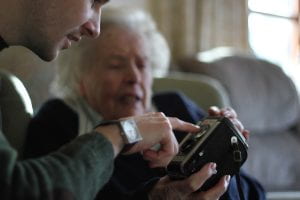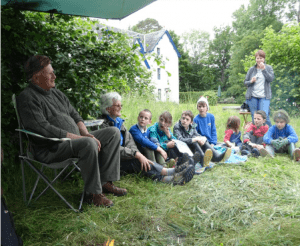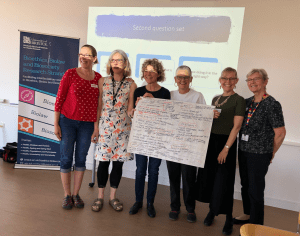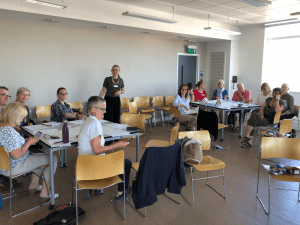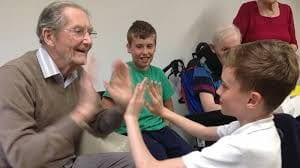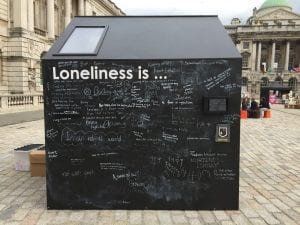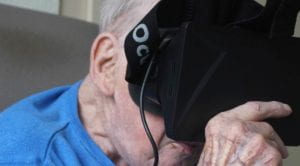
Dates: 29th and 30th June, 2020
The call for papers
Interdisciplinarity and multiple methods: Building new models, theories and approaches to ageing and technology
Historically technology designs for those in later life have often been produced in labs by computer scientists and engineers. However, more recently, there has been a move towards interdisciplinarity and a recognition of the important role of both social scientists and arts and humanities scholars (including design researchers) in these research and design processes. This raises the necessity of mapping and analyzing the distinctive contributions of these disciplines and specifically the modes of interdisciplinary collaboration that are emerging in the field. In order to investigate the multiple knowledge forms and practices associated with interdisciplinary research, and the challenges related to establishing the conditions required to support interdisciplinary collaborations (Barry, Born and Strathern, 2007) we invite papers that explore these assertions in reflecting on what happens when scholars at the crossroads of STS and Age Studies (broadly defined) engage in interdisciplinary research and practice with others? What logics govern these interdisciplinary encounters? What radical new models emerge through interdisciplinarity for the fields of ageing and technology? How do multiple methods emerge in design and research processes? (How) do these collaborations lead to better policies and practices in relation to technology design and innovation for older people?
We invite scholars working across disciplinary boundaries to explore themes related to their critical interdisciplinary engagement in ageing and technology debates. Whilst our network is focused on contributions from STS and Age Studies we are interested in fostering critical interdisciplinary debate about the design and role of technologies in relation to the lives of older people. For this workshop, we invite contributions from a wide disciplinary background in the social sciences, arts and humanities, including but not limited to critical and cultural gerontology, science and technology studies, sociology, anthropology, age studies, HCI and education.
Themes may include (but are not limited to):
- Interdisciplinary design approaches for, with and by older people
- Multiple methods in studying ageing and technology
- New modes of interdisciplinary collaborations
- Ethics in interdisciplinary research
- Institutional forms and how they influence interdisciplinary work in ageing and technology
- Policy and practice entanglements
- Materialities and temporalities in interdisciplinary research
- Interdisciplinary understandings and/or methods of care
We encourage participants to submit proposals in a variety of forms. Please send up to 300 words by 31st January 2020 proposing one of the following directly to helen.manchester@bristol.ac.uk.
- A 15 minute academic paper
- A 45-60 minute workshop
- A poster presentation or showcase of a technology design
We will send confirmation of acceptance of your submission by March 1st, 2020
NB If you are an early career researcher who has no funding to enable you to attend please indicate this on your submission as we have received some funding to support the attendance of ECRs who would otherwise be unable to attend.
The Socio-gerontechnology network
The Socio-gerontechnology network of researchers share an interest in exploring the entanglements of ageing and technologies. The network seeks to strengthen critical and reflexive thinking and research by emphasizing the complex and co-constitutive relationship between ageing, technology and society. It brings together international scholars from a variety of disciplinary background (i.e. critical and cultural gerontology, science and technology studies (STS), sociology, anthropology, age studies, HCI and education) and provides a forum for productive, open and supportive exchange and dialogue, with the aim of fostering curiosity, reflexivity and enthusiasm for researching the topic. The network embraces both early and more established academic scholars but has a particular emphasis on activities that support early career scholars. After previous meetings in Vienna (2017), Barcelona (2018) and Stockholm (2019), this is the fourth annual workshop of the Socio-Gerontechnology Network.


Venue
University of Bristol is located in the beautiful city of Bristol, UK, famous for balloons, Wallace and Gromit, Roni Size (amongst others) and summer festivals. The School of Education is located centrally in the city and (despite the hills) is only a short walk from most city centre hotels.
Accommodation
The venue for the conference will be: School of Education, University of Bristol, Room 4.10. The School is located at 35 Berkeley Square, Bristol, BS8 1JA.
Here are some Bristol Hotels in the city centre- all within walking distance of the conference venue – but up a relatively steep hill.
The University is in the Clifton area of the city and for a fabulous view of the Bristol Suspension Bridge you might want to try this hotel:
The other Hotel du Vin in town is also good:
Other hotels in the Clifton area include cheaper options:
Of course there are plenty of really lovely Airbnbs in Bristol – look for ones in Clifton, Cotham, Redland, City Centre, Harbourside, Wapping Wharf or Southville/ Montpelier which are areas not far from the Centre and the University.
Registration
The conference is free to attend. Please register for the conference at this link.
Social Dinner
There will be a social dinner for all attendees who wish to come. This will take place on 29th June.
NB Please note the British Society of Gerontology will be holding their annual conference in Bristol this year directly following this event (1-3 July). Please consider submitting an application for this conference too https://www.britishgerontology.org/Display.aspx?iid=31162
Travel to Bristol
Firstly just to say our University has declared a climate emergency so we do encourage people to consider not flying if at all possible but understand this can be difficult for those with caring responsibilities or health issues.
Train travel: Bristol Temple Meads is the train station in the city centre so if you are travelling my train go for this one.
Eurostar stops at London St Pancras and from there you need to get to London Paddington (look out for the bear!) to get to Bristol Temple Meads. London to Bristol takes between 1hour 20 mins and 1 hour 40 mins depending which train you catch.
You can book train travel through the National Rail website or alternatively through Trainline (nicer interface but they charge a small booking fee)
Bus travel: There are also regular buses from London to Bristol which take a bit longer – dependent on traffic of course!
You can book bus travel through National Express
Flights: If you are flying there are some direct flights to Bristol airport and there is a bus from the airport to the city centre as well as taxis available. Taxis cost around £35 one way into the city centre.
If you are flying into Gatwick or Heathrow you can either catch trains or buses to Bristol. Heathrow is nearer to Bristol and there is a direct bus service from the terminal there. Trains from Heathrow go via Reading but are also relatively frequent. Gatwick is a bit harder but you can get to London and from there catch either a train or bus to Bristol.
Please do get in touch if you need any further or bespoke travel advice and I will do my best to help!

